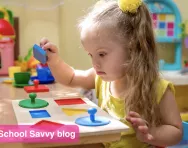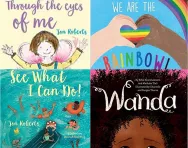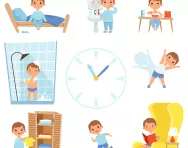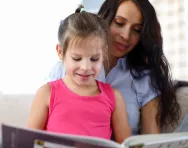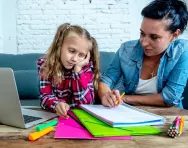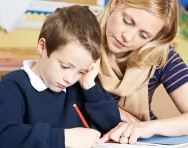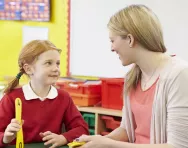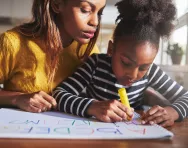What's new this school year? Parents' guide to changes
September has arrived and primary schools across the UK are gearing up for several significant changes. Headteacher and writer Matt Revill breaks down what to expect from your child's primary school in this new academic year.
Pawsitive changes: Animals transforming schools
Primary school headteacher, Matt Revill, explores the transformative impact of animals in educational settings, addressing key questions such as how dogs assist children in reading, the inspirational value of farm visits and the benefits children derive from therapy pets.
SEND funding crisis: Are children at risk?
SEND funding for schools is in a precarious state, leaving the future of education for SEND children uncertain. Primary headteacher Matt Revill shares his perspective on the alarming state of SEND education and offers actionable advice for parents looking to drive change.
Concerning trend: schools cutting teaching assistants
Teaching assistants play a crucial role in primary schools, providing essential support to both students and teachers. However, recent cuts in TA numbers threaten the quality of education. Matt Revill, primary school teacher, explains in this week's blog why TAs are indispensable and what we can do to ensure they remain a vital part of our classrooms.
Class photos excluding SEND children
School picture day – it used to be about crisp uniforms, forced grins and quick comb-throughs. But a recent news story has highlighted a rarely addressed issue: the importance of inclusion for children with complex needs. Primary school head teacher, Matt Revill, delves into this timely topic in our School Savvy blog.
7 tips to ease SATs stress for SEND children
During SATs season parents strive to convey the importance of exams without overwhelming their children, especially those with special educational needs and disabilities (SEND). Helen Spiers, child and adolescent counsellor and Head of Counselling at Mable Therapy, gives her expert advice.
Budget breakdown: positive news for SEN children
In this week's School Savvy blog, Matthew Revill, a seasoned educator and headteacher at a primary school, offers his insights into the implications of the Spring Budget for both our classrooms and homes.
Best audiobooks for primary school kids
Audiobooks are a wonderful way to enjoy stories, especially for those who struggle with reading. With so many to choose from, we've rounded up some of our favourite audiobooks for primary-school kids, so that you have a good place to start!
Is your child left-handed (and does it matter)?
With 90% of the world made up of right-handers, how does being left-handed affect learning at school? Hetty Walton, mum to left-handed daughter Isobel, 11, investigates.
Best SEN gifts: sensory needs
Finding the right gift that will bring joy and comfort can be a challenge, and it can feel like the world of children’s toys is lacking in the special educational needs (SEN) department. But the market is slowly changing, and sensory toys are becoming a popular choice for children of all neurological backgrounds.
Best books for inclusion and diversity
Creating an environment that promotes inclusivity and diversity at home and in the classroom is incredibly important, but how can we do this? A great place to start is with one of the oldest and most powerful tools for opening minds there is – books!
Child to parent abuse: ‘My daughter made threats to kill me’
One mum shares her experience of parenting an abusive and violent child.
Understanding child to parent abuse
A violent or abusive child can have a big impact on the whole family. But what might trigger child to parent abuse (CPA), and how can you find a way through it?
'Alternative provision has helped my daughter's social skills and confidence'
Being educated outside school in alternative provision can help children who struggle with mainstream schooling. One mum shares her story.
What is alternative provision?
Children who have difficulties with school may fare better in alternative provision. We take a look at what you might expect if your child is moved to an alternative education setting.
Free school meals, free school transport and school uniform grants explained
Find out what help is available with the cost of school meals, home to school transport, and school uniform.
‘PDA is anxiety driven, not a discipline issue’
One mum shares her child's struggles with pathological demand avoidance (PDA) and how the family has learned to support him.
What is pathological demand avoidance?
Some children with autism struggle with PDA: an anxiety-driven condition that can make it extremely difficult to comply with demands. We explain what it is and how to help your child cope at home and at school.
What is a social story?
Social stories can help children with special needs understand situations that might crop up at school or at home. Primary school SEN Inclusion Lead Julie Steele explains how they work.
Best literacy resources
Whether your child is just learning to read and print letters or looking for ways to put their creative writing skills to the test, we've rounded up some fantastic resources to help them practise phonics, grammar, story-writing and comic-creating at home. Plus there are loads of different ways to connect with authors and listen to stories.
Special educational needs: navigating change
If your child with SEN is struggling with changes to their daily routine, read our advice on helping them cope during challenging times.
6 useful study tips for children with Dyslexia, ADHD and DCD
Children with a specific learning difficulty (SpLD) such as dyslexia, ADHD and DCD/Dyspraxia, can find studying more of a challenge and often benefit from different styles of learning. Learning advisor and specialist teacher Ann-Marie McNicholas shares practical advice to help make studying easier.
Managing deafness and hearing impairments at school
Help your child cope with hearing loss at primary school with expert advice from the National Deaf Children's Society.
The Welsh ALN Act explained
From September 2020, new provision for special educational needs will come into force in Wales. We explain the new ALN Act.
Best apps for children with special educational needs
If you're supporting a child with special educational needs, try these brilliant apps to help make life easier, at school and at home.
What to expect from speech and language therapy
Speech, language and communication difficulties can hold your child back at school. We explain what to expect if your child needs intervention.
What is a visual timetable?
Many children benefit from having a predictable routine in their lives. Visual timetables can help them in the classroom and at home.
What to do if your child’s school doesn’t support their special educational needs
Dealing with a special needs diagnosis is never easy, especially if your child's school doesn't recognise their problems. How can you make sure they get the help they need?
What is a pupil referral unit?
We explain what to expect if your child is referred to a pupil referral unit (PRU), an alternative to mainstream school.
Coping with speech and language difficulties in mainstream school
Louisa Reeves, Speech and Language Advisor with the children’s communication charity I CAN, shares her advice on helping a child with communication difficulties cope at school.
6 reasons children are excluded from school – and what you can do about it
Every year, thousands of pupils are excluded temporarily or permanently from primary schools. We look at the facts behind the figures.
How to prepare a child with communication difficulties for starting school
Maxine Burns, speech and language advisor at children's communication charity I CAN, shares her tips for helping your child settle in at school.
Sign language and Makaton in primary schools
Signing can give children an educational boost, regardless of whether they have special needs. We take a look at its growth in schools.
The 6 Best touch typing tutors for kids
Touch typing is an essential skill for today's tech-savvy kids, offering them a huge advantage with secondary-school homework and for the whole of their working life, but your child is unlikely to be taught it in school. Using typing tools can hasten your child's progress while also learning techniques that can increase speed and accuracy.
We review 6 of the top typing tutor programmes to help you find the best at-home learning solution for your family
What is sensory processing disorder?
Many children have difficulty experiencing the world as a result of sensory issues. We take a look at this often misunderstood disorder and explain what parents need to know.
How dyslexia affects writing
From formulating ideas to getting words on the page, we take a look at why written work can be a challenge for dyslexic children and suggest ways to support your child's writing at home.
How dyslexia affects spelling
Dyslexia can have a profound effect on how your child learns to spell, but there are strategies to help them tackle their challenges. We share advice from the British Dyslexia Association to help you help your child at home.
How dyslexia affects reading
From difficulty with phonics to ‘dancing’ letters, dyslexic children may face extra challenges when they're learning to read. We explain how you can support their learning at home.
How to help your child manage their anger
Is your child’s temper affecting their learning, friendship and family life? Anger management strategies could help them get their emotions under control.
What is CAMHS?
Child and Adolescent Mental Health Services provide help for young people suffering a range of difficulties. We take a look at how they could help your child.


